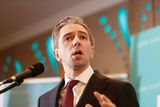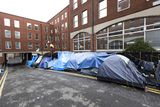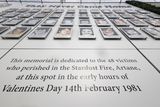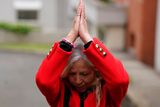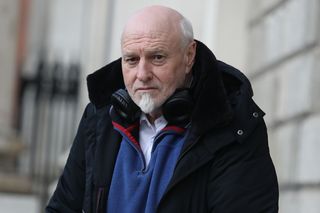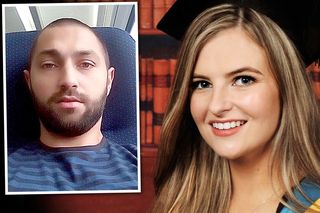Are there any more Alberts ready to bring business know-how into politics?
Ryanair CEO Michael O'Leary has paid tribute to the late Albert Reynolds's leadership but few business people would follow that path into politics
Let's start with a straight question: can you see Martin Heydon, Marcella Corcoran Kennedy, or Ged Nash as Taoiseach in 2026?
Raising the stakes on the old Kerry stereotype - that propensity to answer a question with another one - many of you will answer this query with not just one, but two more questions of your own: Who? and Why?
So, while we're at it let's pose a third puzzler: Can we see a latter-day Albert Reynolds, a business titan in the millionaire class, bothering with politics in these sound-bite, image-sanitised era?
It's more helpful to answer the second of our three questions first. The much beloved Taoiseach Albert Reynolds, whom we will bury today, was part of a huge, new and largely unheard-of in-take of TDs to Dail Eireann in June 1977. By February 1992 he had become Taoiseach. And many of his unknown, novice buddies were household names roundabout the end of the same 15-year period.
In June 1977, unless you were from Longford; or up to your oxters in Fianna Fail politics; or involved in its near 1960/70s first cousin, showbusiness; you were unlikely to have heard about Albert Reynolds. But the Fianna Fail "class of 1977" included two future Taoisigh, with Bertie Ahern along with Reynolds, and two future EU Commissioners in Padraig Flynn and Charlie McCreevy, along with other names which soon became prominent for various reasons, both positive and negative.
Let's round off the 1977 list as follows. There was Sean Doherty, Joe Walsh, Michael Woods, Liam Lawlor, Vincent Brady, Mark Kiillilea, Sean Keegan, PJ Morley, Jim Fitzsimons, Kit Ahern and Terry Leyden.
The point we are making here is that Fine Gael's Martin Heydon of Kildare South and his party colleague, Marcella Corcoran Kennedy of Laois-Offaly, and Labour's Ged Nash from Louth, are as little known nationally now as those we have listed above were after the 1977 general election. Time alone will tell us whether they and their equally little-known colleagues will become senior government figures.
Already, we have seen two FG backbenchers from the class of 2011, Paschal Donohoe of Dublin Central and Simon Harris from Wicklow make the government senior and junior team respectively. Indeed, Ged Nash was appointed a Junior Minister responsible for jobs in the re-shuffle last July, and may already be on the road to national notoriety.
So, there is no real reason why, in the coming years, the Dail class of 2011 will not produce a Taoiseach who may prove worthy of the title. But the other question: will we attract seasoned business people, like Albert Reynolds, to politics, is interlinked.
Reynolds was almost 45 when he stood for the Dail for the first time in June 1977 and had spent three years on Longford County Council before that working the grass roots.
While he was older than his average newcomer colleagues at Leinster House, he also brought a quarter of a century of business wheeler-dealing in which he made vast amounts of money.
Reynolds's application of business values to politics had a plus and minus side for him. It may well have contributed to his ultimate inability to last even three years as Taoiseach. But it probably also contributed to his considerable achievements during this short and fractious period in office.
There are strong arguments to support the contention that his period in various senior ministries from 1979 to 1982 and again from 1987 to 1991 were largely beneficial to the Irish economy from then onwards.
There are those who will argue that Ireland was at that stage set on a self-fulfilling upward trend.
But such arguments are glib and deride the role of democratic government.
There have been other business people in Irish politics before and since Albert Reynolds.
But none has achieved such high office and he is the only business person to become Taoiseach.
Talk of business people these days often suggests the name of Ryanair's Michael O'Leary. His tribute to Reynolds during the week risks passing without due notice amid the tribute forest.
With typical candour, O'Leary said: "I think history will be very kind to him and it should be. In a relatively short period as Taoiseach he achieved a terrific transformation, both in the peace process and also setting Ireland on a period of very rapid economic growth".
O'Leary continued: "He wasn't perhaps the greatest politician in the world. He managed to blow up two coalitions in a relatively short period of time."
But O'Leary concluded that Reynolds's period in office was better by far than Bertie Ahern's, which was characterised by dithering and pandering to interest groups.
We need to think again about our politics, which are now so bound by sound-bites and focus groups designed to tell voters what they want to hear rather than what they need to know.
Opening such a debate on such a big task would be the best tribute to Albert Reynolds, a politician and Taoiseach who brought a different outlook to politics.
John Downing
Join the Irish Independent WhatsApp channel
Stay up to date with all the latest news





